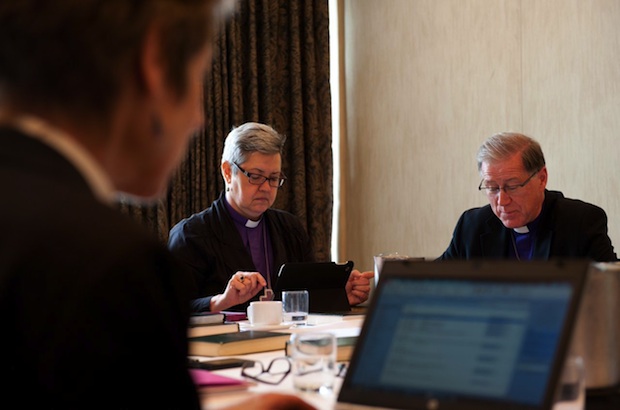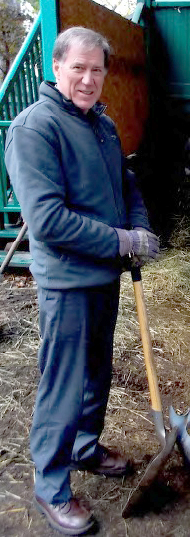Having Easter with its embarrassingly fundamentalist insistence that Jesus rose bodily from the dead safely behind us, Primate Fred Hiltz has moved on to events of more cosmic significance. Easter is, after all, but a pale foreshadowing of – wait for it – Earth Day.
This year’s observance of Earth Day follows immediately on the events of Good Friday and Easter Sunday. In them we see movements from enmity to reconciliation, suffering to hope, and death to new life. They speak not only to humanity but also to the interconnectedness of all of creation.
The Scriptures tell us that our first vocation as human beings is to tend God’s creation. An honest assessment of our diligence in that call inevitably leads us to confess “our waste and pollution of creation and our lack of concern for those who come after us.” (Ash Wednesday Liturgy)
Hiltz draws his inspiration from the IPCC, a fitting source since the IPCC is as lacking in credibility on climate science as the ACoC is on its corresponding neurosis, human sexuality.
Reports on the state of the environment as documented by the UN Intergovernmental Panel on Climate Change are increasingly alarming.
Hiltz wishes to learn from “global partners” – except, that is, the Global South whose views on human sexuality he studiously ignores.
We learn from global partners. A call from the Anglican Communion Environmental Network to a deeper commitment to the fifth Mark of Mission shared by Anglicans worldwide influenced the Anglican church’s recent decision to have candidates for baptism make an additional vow “to strive to safeguard the integrity of creation and respect, sustain, and renew the life of the earth.” (An Act of General Synod, 2013).
Emissions must be reduced:
Our churches commend the UN effort to reach a global treaty in 2015 to secure a global agreement on a net zero emissions goal. Canada, with the second highest greenhouse gas emissions intensity per capita of the G8 countries, is expected to announce an emission-reduction target for 2030 that would be significantly lower than 2020 levels. While progress is being made, without new measures, absolute emissions in 2030 would be projected to reach 815 megatonnes — 81 megatonnes more than projected for 2020.
China, one the largest consumers of fossil fuels, will ignore any global emissions treaty; ironically, it is also one of the places where Christianity is flourishing most vigorously: 10,000 people per day are being saved – from hell, not pollution.
It’s just as well that no-one has bothered to tell Chinese Christians that their first vocation is not “make[ing] disciples of all nations, baptising them in the name of the Father and of the Son and of the Holy Spirit”, but – gardening:
On this Earth Day, our hope is that we will rise up more conscious than ever of our first vocation as human beings caring for the Earth with the utmost respect for the Creator and the utmost regard for the generations of all those who come after us.
Like this:
Like Loading...


 From
From  The Anglican Church of Canada has published a
The Anglican Church of Canada has published a